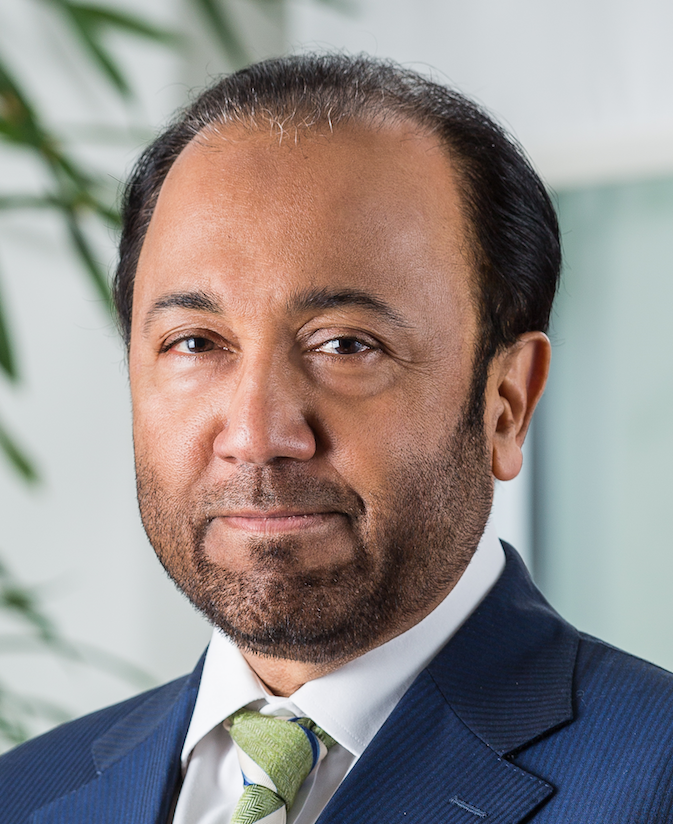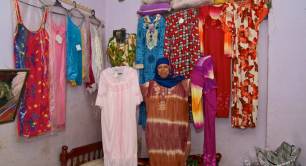Scaling new heights: how faith-based investing can reach its potential
Faith-based investors represent a small, though growing, portion of the world’s total assets under management. But 'alliances of goodness' between faith groups are starting to collaborate and allocate impact-first capital. In the first in our new series, Fajr Capital CEO Iqbal Khan reflects on how far faith-based investing, and Islamic finance in particular, have come – and shares five steps to help climb the mountain ahead.
 Investors can learn a lot from mountaineers. The ultimate purpose in their mind is to reach the summit. Mountaineers display courage to overcome their concerns, they persevere in the face of adversity, and they don’t allow the fear of failure to distract them from reaching their end objective.
Investors can learn a lot from mountaineers. The ultimate purpose in their mind is to reach the summit. Mountaineers display courage to overcome their concerns, they persevere in the face of adversity, and they don’t allow the fear of failure to distract them from reaching their end objective.
By climbing physical peaks, the emotional resilience and strength that mountaineers develop also helps them to conquer the world’s great challenges of hunger, disease, and inequality.
My dear friend and mentor, Lord Stephen Green, was an avid mountaineer and often shared climbing analogies during his tenure as chairman and CEO of HSBC. I take inspiration from Lord Green when I describe the faith-based investment community as having reached the halfway point of the ‘mountain’ of impact investing.
Progress made – but more to climb
Looking down, we see how far faith-based investment has come. Let’s take my own industry, Islamic finance, as an example. Islam teaches us that the best among mankind are those who benefit humanity (the concept of “yanfa'un-nas" in Quranic teachings). Within this context, Islamic finance is a continuation of the mission-orientated, fairness-based, and impact-driven tradition of finance across the Abrahamic faiths. The economist Dr. Paul Mills, for instance, has published extensive research on financial interest in the monotheistic scriptures which serves as a poignant reminder about the spiritual foundations of faith-based finance.
Islamic investors are encouraged to invest in the real, value-producing economy and to build the embedded capital of the communities they serve
Like Christian and Jewish teachings, Islam promotes trade and commerce, prohibits interest, and discourages indebtedness. Islamic investors are forbidden to engage with businesses that derive their main source of income from activities that are harmful to human beings or society at large – such as alcohol, tobacco, gambling and armaments – and are instead encouraged to invest in the real, value-producing economy and to build the embedded capital of the countries and communities they serve.
These are the principles upon which the story of modern-day Islamic finance is built. Visionary pioneers, such as the late Prince Mohammad Al Faysal Al Saud, Sheikh Saleh Kamel, and Dr. Ahmed Mohamed Ali and many others, dedicated their lives to create a fairer and more equitable faith-based financial system that serves commerce and communities, not just markets. From a nascent proposition in the 1970s, there are now well over 500 Islamic banks around the world today and Islamic finance is prospering in every continent except Antarctica. The total value of Islamic finance assets reached almost $3trn in 2020 and is expected to grow at a compound annual growth rate (CAGR) of 5% until 2024.
Looking up to the peak, however, we realise just how far faith-based investing still has to climb in order to reach its ultimate destination. Despite their longstanding tradition as leaders in responsible investing and managing of trillions of dollars, faith-based investors still only represent a small portion of the world’s total assets under management. Furthermore, the World Bank estimates that 1.7 billion adults around the world still do not have access to basic financial services; pressing global problems, such as climate change and extreme poverty, require significant and urgent investment. While faith-based investors have made steady progress in recent decades, our industry must broaden its reach and deepen its impact.
An alliance of goodness
The next stage in the evolution of the faith-based investment community lies in joining forces to create an “alliance of goodness” between faith groups to collaborate and allocate capital in a manner that places impact first, not last. The Global Impact Investing Network’s Faith-Based Investors Hub, for example, is a unique platform for action that brings together investors from Christian, Jewish and Islamic traditions to explore how faith-based investors can collaborate to deepen the impact potential of their investment portfolios and advance global development agendas, such as the UN Sustainable Development Goals (SDGs) and Paris Climate Agreement.
We need many more initiatives such as this Hub in order to collaborate and create a truly global demonstration effect. Some of the next steps should include:
- Lead by example to not only advocate for responsible investing, but also ensure our portfolio companies transform their corporate culture from a paradigm of “ownership” to a paradigm of “stewardship”;
- Increase allocation for emerging and frontier markets, where there is a greater ability to create long-term social impact and value for local communities alongside generating strong financial returns;
- Create co-investment partnerships between faith-based investors to address the world’s most pressing challenges in sectors such as education, renewable energy, healthcare, microfinance, infrastructure and agriculture;
- Strengthen corporate governance to focus on integrity, transparency, and accountability, i.e. introducing ethical supervisory boards (such as Shari’a Boards in Islamic finance) who are an integral part of the investment process; and
- Provide opportunities to tomorrow’s leaders by nurturing human capital through training and development, internships, exchange programmes and graduate-level recruitment.
Above all, I have long believed in the democratisation of philanthropy as a way to bring communities together. We have more in common than that which divides us and we have a lot to learn from each other, especially in the area of philanthropy.
We may commence this journey from different starting points, but our ultimate destination is the same: to create a better world
We at Fajr Capital believe that employee-led corporate philanthropy builds a unique sense of ownership across the firm and brings abundant blessings at an individual and institutional level. In 2018, for example, the Fajr Capital Foundation signed a partnership agreement with UNHCR, the UN’s refugee agency, to support and protect refugees, forcibly displaced communities, and stateless people around the world. We have since not only provided thousands of refugees with urgent humanitarian assistance, but also given strategic support to UNHCR through our expertise in Islamic finance and know-how and networks in the private sector.
As faith-based investors we are on a journey. We may commence this journey from different starting points and we may take different paths along the way, but our ultimate destination is the same: to create a better world. The time has come for us to join hands and climb together to fulfil the potential of faith-based investment. With the blessings of the divine, this human endeavour will make our world a better place for all.
- Iqbal Khan is CEO of Fajr Capital, an Islamic investment firm which invests in the Middle East and Southeast Asia.
Thanks for reading Pioneers Post. As an entrepreneur or investor yourself, you'll know that producing quality work doesn't come free. We rely on our subscribers to sustain our journalism – so if you think it's worth having an independent, specialist media platform that covers social enterprise stories, please consider subscribing. You'll also be buying social: Pioneers Post is a social enterprise itself, reinvesting all our profits into helping you do good business, better.





